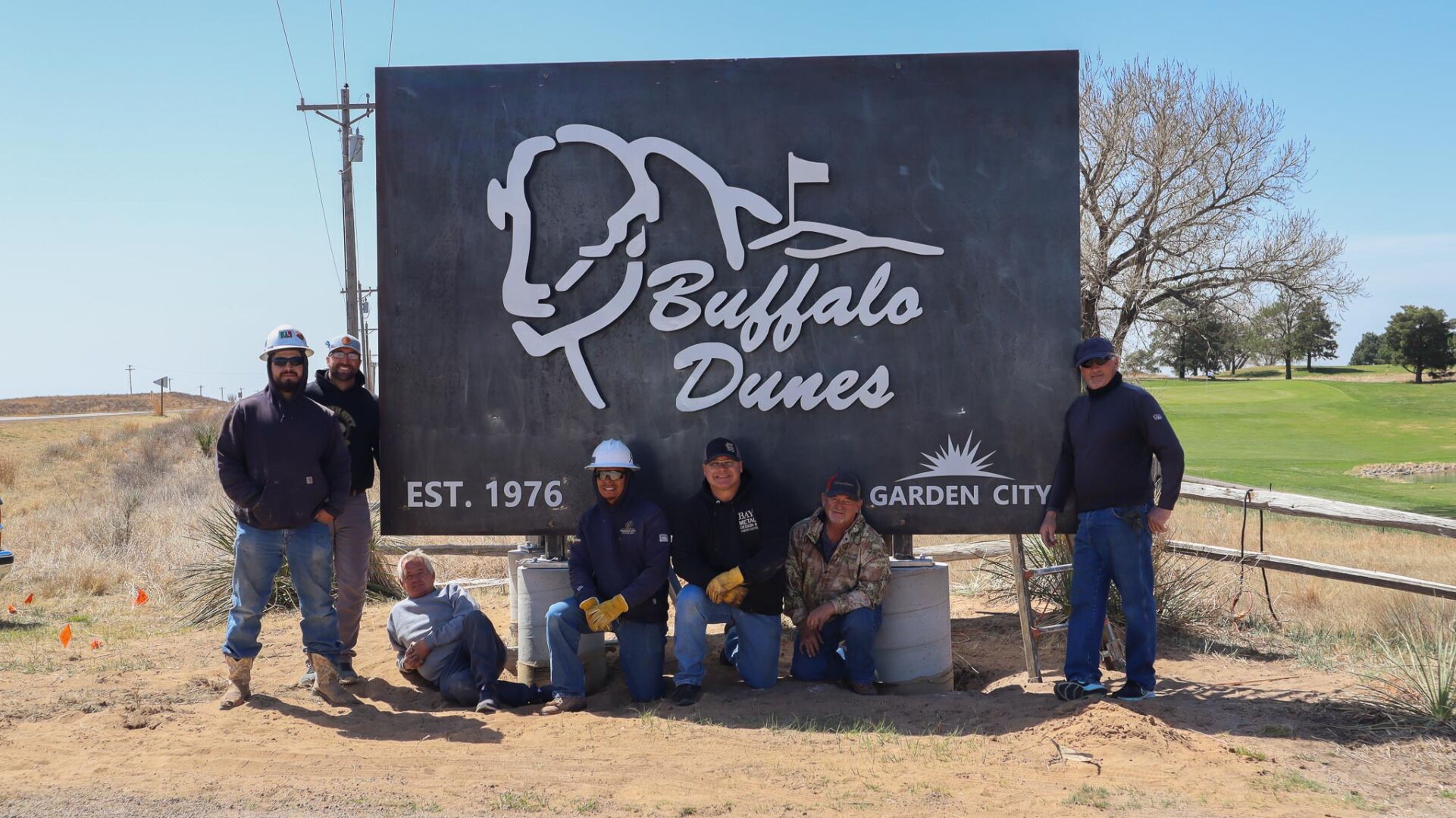Golf pro Jason Hase’s water education was ingrained after 16 years of working in San Angelo, Texas.
When he arrived in southwest Kansas in August 2017 to manage Buffalo Dunes, Garden City’s municipal golf course, it didn’t take long for changes to surface over the popular 18-hole course.
The same was already occurring throughout the agriculturally based community.
Garden City’s national award-winning Customer Water Use Report Program is an example (see sidebar, "About that award," below).
“The Dunes has always been thought of as a great golf course,” Hase said.
Early on in his new stop on the Kansas High Plains, the golf pro and Clay Payne, course superintendent, got together and shared ideas. They launched a big project.
Buffalo Dunes is halfway through converting more than 20 acres of irrigated bluegrass to buffalo and other native grasses. The move is expected to save up to 20 million gallons of water a year and 16 to 18 hours of labor each week.
“It’s gonna take fewer man hours to maintain the golf course, also less fungicide, herbicide and fertilizer,” Hase said. “The grass we’re putting back in on the greens is more heat and drought tolerant.”
Several trees were also eliminated to show more of the links from most any vantage point.
“People were concerned at the beginning,” he said. “Now that they’ve seen what the golf course is going to look like, they’re excited. If anything, it’s made the course more playable.”
A fourth set of tees was added around the course, he said.
“With the things Clay and his staff have done around the greens and approaches, you have more variety of shots to choose from,” Hase said. “It’s more enjoyable for all levels of golfers.”
Those improvements also address water concerns.
The project launched in 2019 and is planned for completion in time for the course’s 50th anniversary in 2026. What’s happening at Buffalo Dunes, roughly a 10-minute drive from Garden City, melds nicely with Lee Richardson Zoo and the town’s parks and recreation infrastructure.
The city did away with an iconic public swimming pool and built a new one, complete with a water park that preserves water rather than letting it seep through century-old concrete.
Leaders and residents have bought in to water conservation, said Fred Jones, Garden City’s water resources manager.
He oversees the water and wastewater departments.
“We’re focusing on conservation, ensuring the city has adequate water supplies,” Jones said. “We’re involved in the conversation regarding water in the region, paying attention to what’s going on legislatively and in the field.”
Garden City is a southwest Kansas regional center, in the middle of a farming economy. It’s also a cattle industry hub, and a dairy center—all water intensive.
Millions of gallons of milk from large regional dairies are trucked to the Dairy Farmers of America powdered milk plant every year, where the water is removed, treated, and discharged into the nearby Arkansas River.
“The city has been working with the (federal) Bureau of Reclamation, looking at ways to re-use wastewater for industry or to create some recharge for the (Ogallala) aquifer,” Jones said.
Roughly 3.5 million gallons of effluent water goes into the river daily, he said, and 1 million gallons of it comes from the DFA plant.
“The idea is to offset the amount of water it takes to perform the process,” Jones said. “We’ve reduced water use, built a new pool that uses significantly less water and we’re using smart irrigation technology, more weather-based irrigation control, and also promoting that with customers.”
The city offers rebates for certified electronic irrigation controllers in town.
“Water use is really pretty flat in Garden City considering the amount of growth that’s happened in the community,” Jones said.
The U.S. Census projected the current population is 26,219.
Garden City’s water consumption per capita in Garden City was 171 in 2015, he said, and dropped to 162 in 2020.
“We spend a lot of time keeping track of water meters. If we have a leak, it’s fixed immediately, day or night,” Jones said. “The community’s been responsive to being water conscious and the city’s been responsive in investing in the water system.
“I’m proud of the community and my department.”
Tim Unruh can be reached at [email protected].
About that award
The City of Garden City, Kansas, won the national Smart Water Application Technologies Outstanding Public Engagement Award in 2021, from the Irrigation Association. Based in Fairfax, Virginia.
“IA is dedicated to promoting efficient irrigation technologies, products and services,” according to the organization’s website.
Garden City provides every residential address with customized water-use information, such as comparing each customer’s address to the average use of their neighborhood and the average usage of all water users in the city, according to a story on the association’s website.
Since the program began, Garden City has seen consistent declines in gallons per capita in daily water consumption—182 gallons a day in 2017 when the first report was sent. In 2020, per capita daily use was 162 gallons.
“This report has played a role in conveying the need for water conservation in the community and provided residents with tools to help improve their use of water,” the story reads.
To learn more, visit swatirrigation.org.


